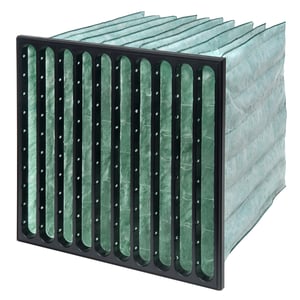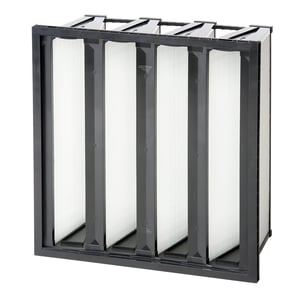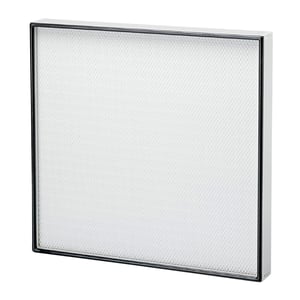
The food and beverage industry is affected by unique air quality challenges that can risk the health and safety of workers, production equipment along with a potential for contamination. Let’s look at how high-efficiency air filters can provide an effective and affordable solution.
Across the world, the daily challenges facing the food & beverage industry have been intensifying for some time. From product safety recalls to fluctuations in global food prices, food manufacturers and packaging plants seemingly have enough on their plate when it comes to product safety.
Like any other commercial operation, the presence of airborne pathogens, mould spores, and volatile organic compounds (VOCs) can threaten food safety and quality. Commercial operators like food producers, dairy processors, and beverage manufacturers must pay very close attention to how effective their air filters are and how effective they are at protecting the people, process, and the environment the filters serve. For most, upgrading to high-efficiency air filters is an effective way to reduce the threats from contaminants while improving facility airflow and lowering maintenance costs.
The first step is to identify your food processing business risk area pertaining to air quality challenges. For low care or low risk areas, where food is unlikely to contain pathogenic microorganisms and normally do not support their growth due to food characteristics such as texture, size, appearance, color, or nature, air quality recommendations are standard. Dry foods such as fruits, vegetables, grains, cereals, etc. mostly contain a low risk of contamination. Hence, the minimum filtration required varies. In some cases customers install ePM 1 filters or ISO coarse with an option to upgrade to ProSafe, to mitigate the risk and keep their equipment protected.
On the other hand, food that requires cooking, production, and handling in the manufacturing facility requires ultra-high hygiene due to the potential contamination hazards. This includes meat production facilities, ready to eat products, tasting areas, ice cream production, etc. They require a minimum 3 stage filtration with ePM1 60% and a positive pressure environment must be maintained along with sufficient airflow. The minimum level of air filtration at the final stage should be equivalent to H13 or more in accordance with EN1822:2019.
The below diagrams will explain how food is segmented based on its characteristics and how air quality or air care is determined.





HVAC system in the existing facility may not be designed to achieve increased levels of air changes as well as improved filter efficiency. When these improvements are not available for upgrading the system, the process becomes more challenging due to the cost and expenses. This challenge can be easily met by Camfil's Air Purifiers/Air Cleaners. Camfil recommends using a mobile HEPA air cleaner or air purifier to supplement the existing HVAC system to achieve the required air changes to support the food production facility.
We offer the food & beverage industry a complete range of ProSafe filters – specially designed for use in processes with strict requirements for safety, traceability, and control.


